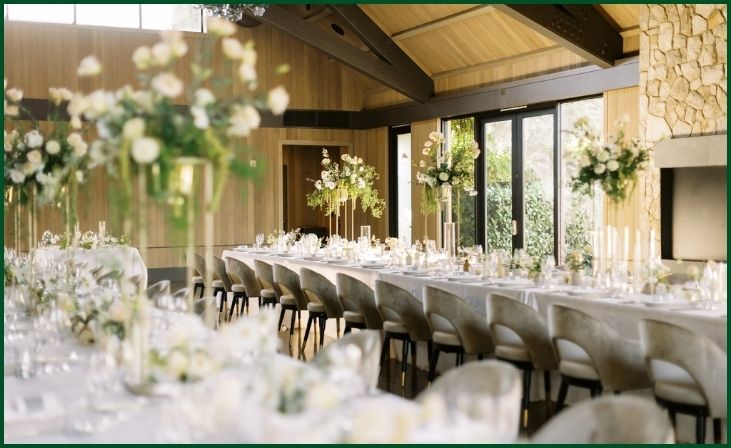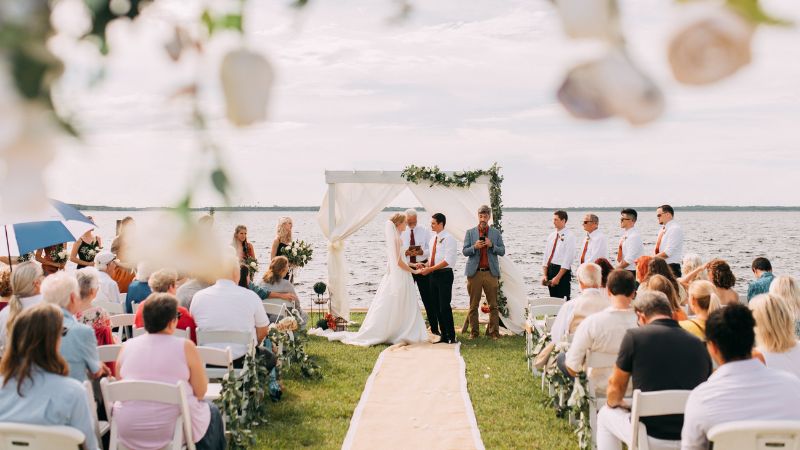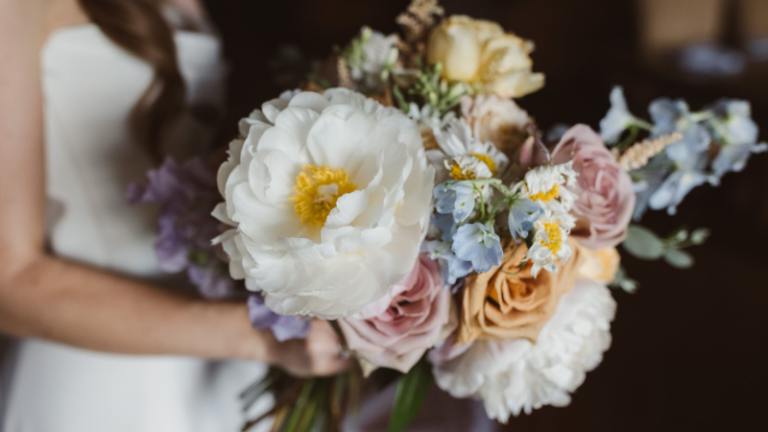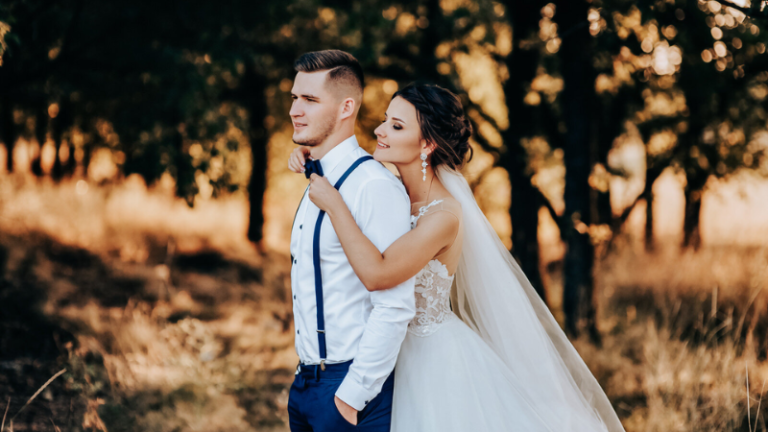Planning a wedding is an exciting journey, but it also comes with its challenges. One of the most crucial decisions is choosing the perfect wedding venue. The venue sets the tone for the entire event, impacting everything from the theme to guest experience. With so many options available, selecting the ideal venue can be overwhelming. In this guide, we will discuss eight essential factors to consider when choosing a wedding venue, ensuring your big day is everything you dreamed of.
Tips to Choose the Perfect Wedding Venue
1. Determine Your Budget

Your wedding planning starts with setting a budget. Before you start visiting venues, establish a clear budget that includes venue costs, catering, decorations, and other essential expenses. A well-defined budget helps you narrow down your choices and prevents financial stress later on. Remember to include hidden costs such as service fees, taxes, and gratuities.
If your dream venue exceeds your budget, consider booking during the off-season or negotiating a package deal. Sticking to a budget ensures you can allocate funds effectively for other aspects of your wedding, making the planning process smoother and more enjoyable.
Also Read- 10 Best Wedding Theme Ideas That Will Always Be a Hit
2. Decide on Your Wedding Style
Your wedding style plays a significant role in selecting a venue. Whether you envision a grand ballroom, a charming barn, or a beachside ceremony, your venue should complement your theme. Some venues have built-in decor and ambiance, reducing the need for additional decorations. Others may require extensive styling to achieve your desired look.
Consider how the venue’s aesthetics align with your vision, and check if it allows flexibility for customization. Selecting a venue that naturally fits your theme can save you time and money while ensuring a cohesive and visually stunning wedding day.
3. Guest List and Capacity
The number of guests you plan to invite significantly influences your venue selection. Booking a venue that is too small may lead to overcrowding, making guests uncomfortable. On the other hand, a venue that is too large might feel empty and lack intimacy. When touring venues, confirm their maximum capacity and ensure it aligns with your guest list.
Additionally, consider seating arrangements, dance floor space, and accessibility for elderly guests. A well-sized venue ensures a comfortable and enjoyable experience for everyone, creating the perfect atmosphere for celebrating your special day.
4. Location and Accessibility
The location of your wedding venue affects guest attendance and convenience. If many of your guests are traveling from out of town, choose a venue near hotels and airports. Consider transportation options, parking availability, and ease of access. If your venue is in a remote area, arrange shuttle services to accommodate guests.
Additionally, consider the season and potential weather conditions that might affect travel. A well-located venue ensures that guests can arrive on time and enjoy the celebration without unnecessary stress, making your wedding a seamless and enjoyable experience for all attendees.
5. Indoor vs. Outdoor Venues

Deciding between an indoor or outdoor wedding venue is crucial. Indoor venues provide controlled environments, eliminating concerns about weather disruptions. They often offer built-in amenities such as lighting, sound systems, and air conditioning. Outdoor venues, on the other hand, offer natural beauty and breathtaking scenery, perfect for a romantic and picturesque ceremony.
However, outdoor weddings require a backup plan, such as tents or indoor alternatives, in case of unexpected weather changes. Consider the time of year, climate, and necessary permits when selecting an outdoor venue to ensure a smooth and stress-free wedding day.
6. Availability and Booking in Advance
Popular wedding venues are often booked months or even years in advance. Once you find a venue that fits your needs, secure your date as soon as possible. Some venues offer discounts for weekday or off-season weddings, which can help save costs. Additionally, check the venue’s cancellation and rescheduling policies in case of unforeseen circumstances.
Booking early allows you ample time to coordinate other wedding details, such as catering and decor, ensuring a well-organized event. A timely reservation prevents last-minute disappointments and gives you peace of mind as you plan your dream wedding.
7. Amenities and Services Offered
Many venues offer packages that include essential services such as catering, tables, chairs, and event coordination. Some venues also provide dressing rooms, sound systems, and on-site staff to assist with setup and breakdown. Compare what each venue includes in their package and determine whether you need to hire additional vendors.
If the venue has preferred vendors, inquire about flexibility in choosing your own. Opting for a venue that offers comprehensive services can simplify planning and reduce costs, allowing you to focus on other aspects of your wedding without worrying about logistical challenges.
8. Catering and Menu Options

Food is an essential part of every wedding celebration. Some venues provide in-house catering, offering a range of menu options tailored to your preferences. If the venue allows outside catering, ensure it meets your requirements for quality, service, and dietary accommodations. Consider menu tastings to finalize your selection and check whether the venue can accommodate special requests.
If you have cultural or themed menu preferences, discuss them with the catering team. A well-planned catering experience enhances your wedding by ensuring guests enjoy delicious meals, making your celebration even more memorable.
For More- 7 Stunning Mother of the Bride Dresses That Wow, Not Bore
Conclusion
Choosing the perfect wedding venue is a crucial step in creating a memorable and stress-free wedding experience. By considering factors such as budget, style, capacity, location, and services, you can select a venue that aligns with your vision. Remember to book in advance, check amenities, and plan for contingencies, ensuring a seamless and beautiful wedding day. The right venue sets the stage for your love story, making it a cherished and unforgettable celebration for you and your guests.
FAQs
How far in advance should I book my wedding venue?
It’s best to book your wedding venue at least 12-18 months in advance, especially for popular locations that fill up quickly.
What should I ask during a venue tour?
Ask about pricing, availability, included services, vendor policies, restrictions, backup plans for outdoor weddings, and payment schedules.
Can I bring my own vendors?
Some venues have preferred vendors, while others allow external vendors. Always check the venue’s policy before making arrangements.




